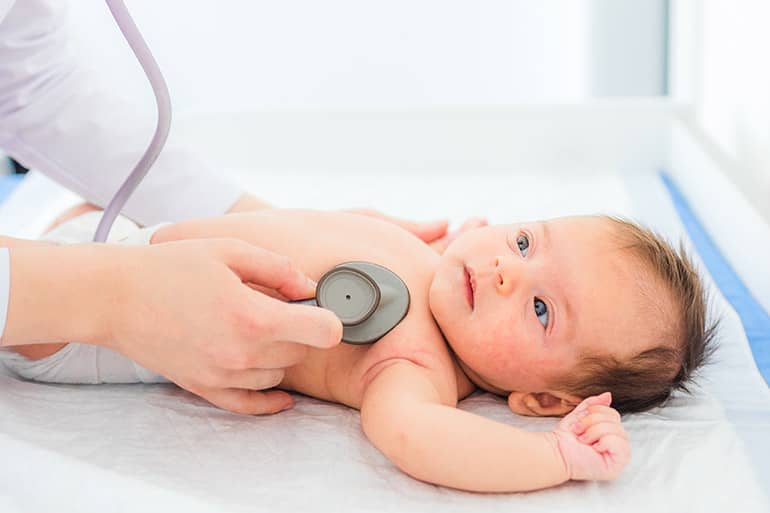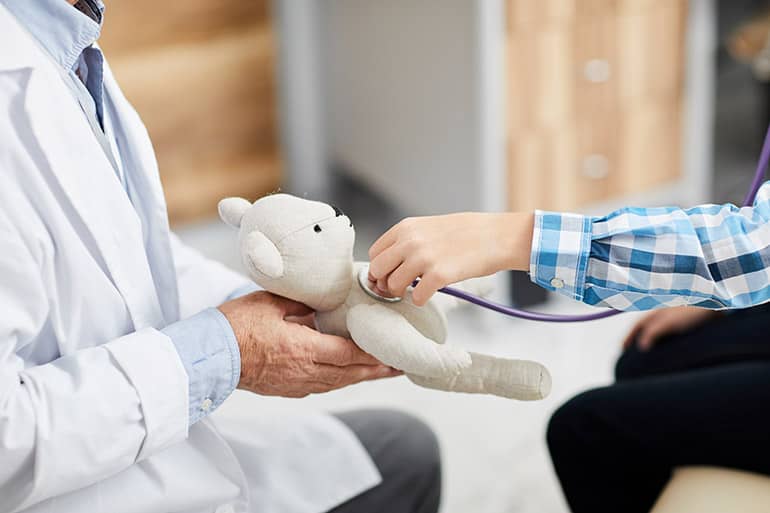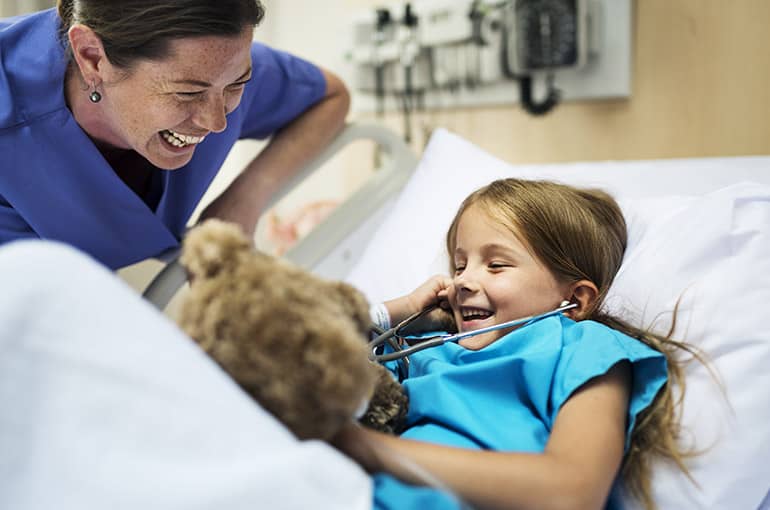Treating kids with cancers differs from treating adults. The future of paediatric cancer treatment is in personalization and for that, connecting experts with key data sources is vital. The iPC project we’re a part of, is building a massive base of high-quality, multi-disciplinary data, bringing hope to children with cancer.

Cancer affects everyone - even our youngest.
Cancer is one of the leading causes of death globally
Unlike the common perspective, cancer is not one singular disease, but a collection of related diseases, usually known as types of cancer. All cancer types negatively affect the quality and the lifestyle of the patient, and most cancer types are still very lethal. In 2018 alone, around 9.6 million people around the globe died from cancer - one person every 3.3 seconds. In Europe, the cancer toll in 2018 was almost 2 million people. Cancer is also a large source of research problems in the biomedical domain, driving some of the biggest achievements in health during the 21st century.
And it affects everyone. People from different backgrounds, of different races, of both genders, and of all ages - even our youngest. Luckily, cancer is relatively rare among kids. Nevertheless, it is still a major cause of death (in some regions, the leading cause of death) in children worldwide. Each year, across the globe, approximately 200.000 kids younger than age 14 are diagnosed with cancer and around 75.000 children with cancer die.
Every day, around the globe, 550 kids are diagnosed with cancer and 200 kids lose their life to it.
Paediatric cancers are different from cancer in adults. How and why?
Children’s bodies work in a unique way and so the type of the developed cancer, how far and how fast it spreads throughout the body, and how it responds to treatment is often different than in adults. Another differentiating factor is the cause. In adults, cancer is often a consequence of some environmental or lifestyle factor, such as poor diet or smoking. But this is not the case with kids. Many times, the cause of a childhood cancer is not known. This makes studying the disease and preventing it very challenging.
In adults, cancer is typically diagnosed in early stages. With children it is quite different. When they are infants, they are unable to truly explain how they feel, and they are unable to properly communicate their symptoms. When kids grow a bit older, the diagnosis is usually delayed because they are more resilient than adults - kids stay active, they play and run around regardless of the symptoms that would disable many adults from functioning normally. So, very often (in 80% of children with cancer), by the time cancer is discovered, the disease has already spread to other organs or tissues. Since paediatric cancer generally cannot be prevented or screened, the best strategy to fight the disease and improve outcomes relies on finding effective treatments.
Side effects are far more severe for children
When a child is diagnosed with cancer, due to the late discovery, the need for a treatment is typically urgent. But treating kids with cancers, again, differs from treating adults. Kids’ bodies respond better to cancer treatments than adults. But the side effects of chemotherapy, radiotherapy, and immunotherapy are far more severe for children because they cause developmental disorders and are longer lasting, inducing secondary, life-threatening diseases. According to a recent retrospective analysis of childhood cancer survivors, as a result of the treatments they had as kids, by the time they’re 50 years old, more than 99% of paediatric cancer survivors will have various chronic health problems. In fact, they will experience, on average, 17 different chronic health conditions, of which almost 4 will be severe, disabling, or fatal. Even if cancer itself isn’t fatal for a child, it will surely create a high burden of health complications during his/her adulthood and significantly affect his/her physical and mental quality of life.
Personalized treatment is the key
Over the past few decades, treatments for paediatric cancer have dramatically evolved. Survival rates have significantly increased, from 5-year survival rates around 0% in the 1940s to modern survival rates of over 80%. Recently, a lot of efforts have been put towards developing personalised treatments for paediatric cancers that are more effective and, at the same time, less invasive and with fewer side effects, causing lesser lifelong damage to young bodies that are still developing.

The future of paediatric cancer treatment is in personalization.
Personalised cancer care is promising, but there are several challenges to overcome. Such treatments can be very expensive and are currently only accessible through clinical trials and specific programmes. They are not (yet) available for all cancer types and are still being explored and developed. Advances in technology and data science greatly contributed to the development of personalised cancer treatments. But while rapid digitalisation and wide connectivity substantially improved cancer research, the basic ingredient - data - is not always easily accessible. We are struggling to effectively gather, use, and share paediatric cancer data.
Paediatric cancer is rare. That’s great! But so is the valuable data
Since paediatric cancer is rare, that means that no one hospital and no one research center in the world has enough data on a specific cancer type or subtype to perform meaningful research. To really understand the disease, draw the right conclusions, and win the cancer fight, researchers and clinicians need access to as much data from as many patients in as many institutions as possible.
The lack of data availability is tightly connected to a couple of other issues. Technology and regulation. Different organisations use different information systems and different standards for managing their data. So, whenever institutions want to share data sources, they usually encounter some interoperability problem. The other problem they usually bump into are legal barriers. Increasingly stricter privacy and data protection laws are raising barriers to collecting and sharing patients’ data. Additionally, due to complex procedures and various policies that are in place in hospitals and organisations across different countries, sharing datasets usually comes with an incredible amount of bureaucracy.

If paediatric cancer data is broadly available, cancer research experts can create effective personalised therapies for kids with cancer.
iPC: connecting experts with key data sources
iPC is an EU-funded collaborative research project (Grant No. 826121), addressing the need to gather, harmonize, and share high-quality, multi-disciplinary paediatric cancer data - all this while optimizing data access procedures and, at the same time, ensuring compliance to various security policies and data protection laws. Making these resources easily findable and broadly available will support a wide community of cancer research experts in creating effective personalised therapies for kids with cancer. To this end, the consortium is building a cloud-based platform for storing, accessing, analysing, and sharing data as well as for disseminating results relevant for paediatric cancer research. The platform will host newly produced datasets and will also link to other similar repositories and platforms hosting paediatric cancer data and offering data analytics and data visualisation tools (such as EGA, ELIXIR, Kids First, BBMRI-ERIC, dbGaP, R2, PeCan). This connected data infrastructure will simplify sharing of valuable resources from multiple locations and will make data work better for researchers and clinicians around the globe. The iPC platform will provide not only a critical foundation for sharing valuable data sources, but also facilitate the development and sharing of intelligent models and algorithms that enable simulation of virtual patients and prediction of optimal, individualized treatments for them.

XLAB is helping advance early and efficient detection of paediatric cancer.
XLAB’s role in the project
The role of XLAB in iPC is to support the development of the iPC platform and provide technical support in terms of cloud security. XLAB will contribute to the development of access control mechanisms with the aim to synchronise different practices around the globe and adhere to newly developed standards in the field. XLAB will also contribute to the development of a solution for efficient dissemination and management of data and computational models. Finally, with the goal to test the platform and evaluate its usability and extendibility, XLAB will make additional contributions in the field of digital pathology. XLAB will develop and test algorithms for the generation of high-quality synthetic imagery data as well as visual anomaly detection, thereby complementing the cancer research of other consortium partners and helping advance early and efficient detection of paediatric cancer.
For further details about iPC and the progress made so far, check out related material on the project website and follow iPC on Twitter and LinkedIn.








